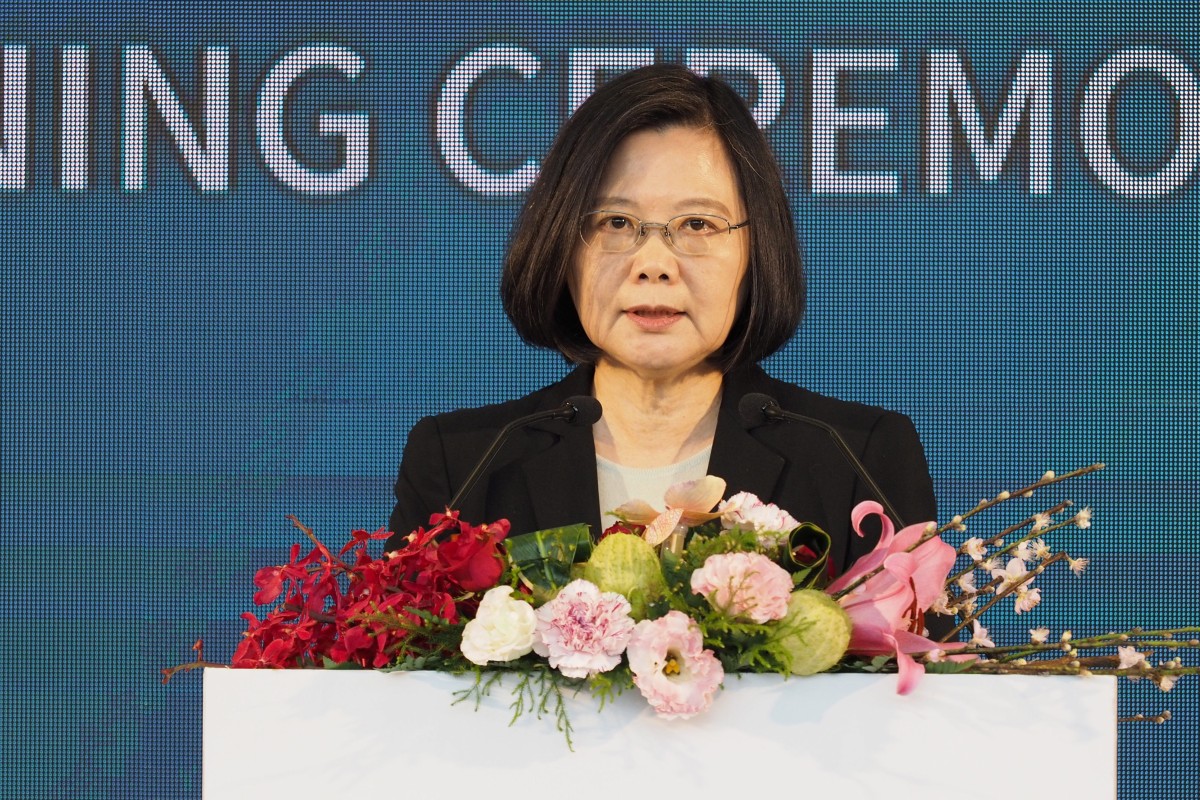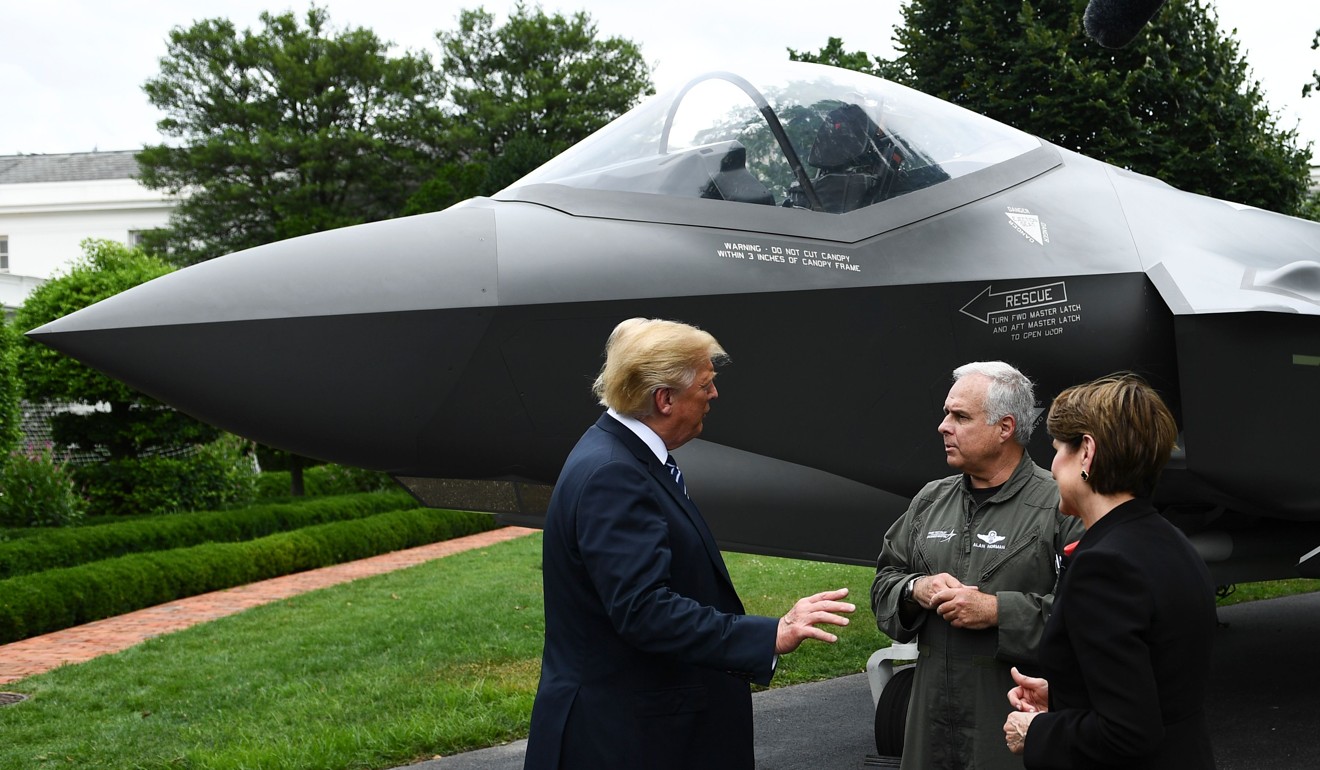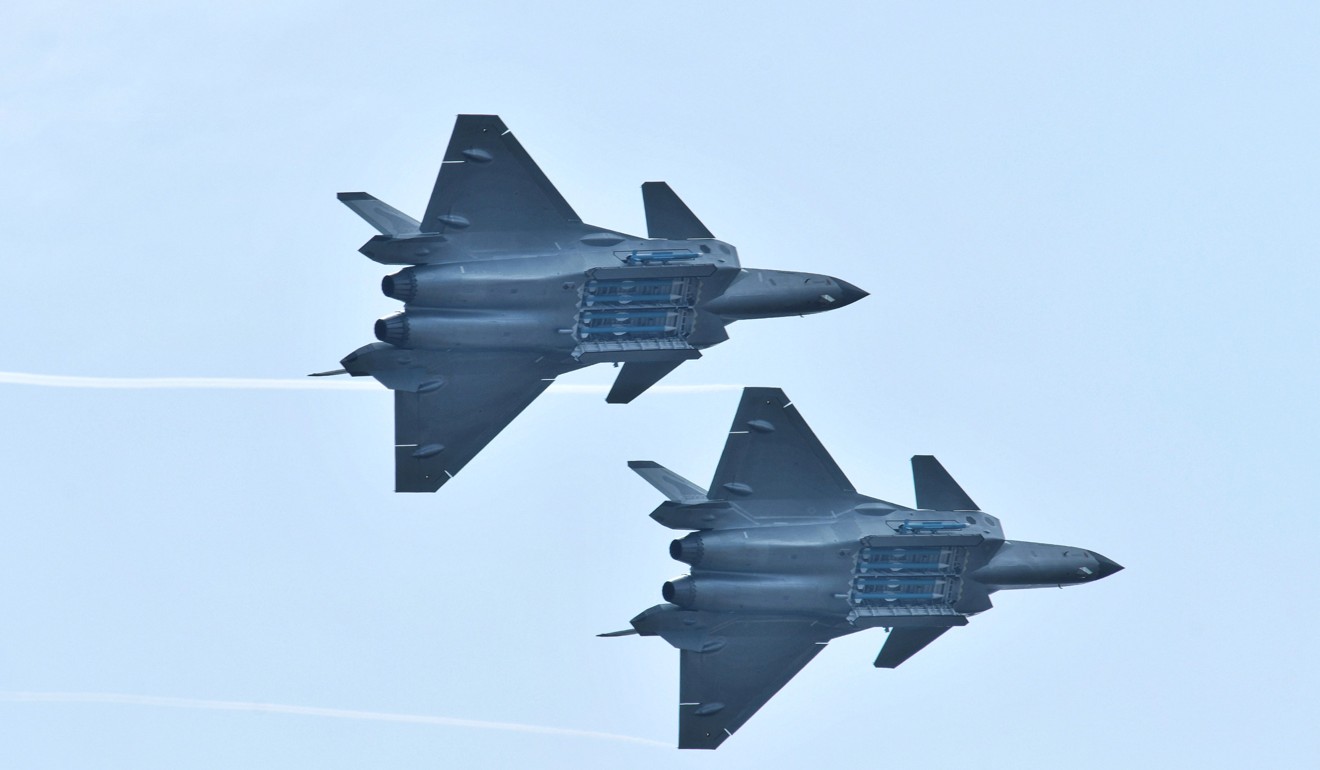Bloomberg

President Tsai Ing-wen of Taiwan this month. Taiwan's Air Force is seeking to buy 66 F-16V warplanes from the US.
The US may finally sell Taiwan the warplanes it has sought for more than a decade to defend against China.
Their arrival would deal more of a political shock than a military blow to Beijing.
Trump administration officials have given tacit approval to Taipei’s request to buy more than 60 Lockheed Martin Corp. F-16s, according to people familiar with the matter, setting the stage for the first such deal since 1992
While a few dozen fighter jets would hardly tip the military balance against the increasing powerful Chinese military, it would signal a new American willingness to back the democratically run island
“For Beijing, it would be a huge shock,” said Wu Shang-su, a research fellow at the S. Rajaratnam School of International Studies in Singapore.
“But it would be more of a political shock than a military shock. It would be, ‘Oh, the US doesn’t care how we feel.’ It would be more of a symbolic or emotional issue.”
The potential sale is among several gestures of US support for Taiwan in recent months, even as President Donald Trump and Chinese dictator Xi Jinping near a deal to end the costly trade war.
Trump administration officials have given tacit approval to Taipei’s request to buy more than 60 Lockheed Martin Corp. F-16s, according to people familiar with the matter, setting the stage for the first such deal since 1992
While a few dozen fighter jets would hardly tip the military balance against the increasing powerful Chinese military, it would signal a new American willingness to back the democratically run island
“For Beijing, it would be a huge shock,” said Wu Shang-su, a research fellow at the S. Rajaratnam School of International Studies in Singapore.
“But it would be more of a political shock than a military shock. It would be, ‘Oh, the US doesn’t care how we feel.’ It would be more of a symbolic or emotional issue.”
The potential sale is among several gestures of US support for Taiwan in recent months, even as President Donald Trump and Chinese dictator Xi Jinping near a deal to end the costly trade war.
The US also sailed a warship through the Taiwan Strait and accommodated President Tsai Ing-wen’s stopover in Hawaii last week, drawing protests from China, which denounced the moves as “extremely dangerous.”
Renewed US interest in Taiwan follows growing calls in Washington for a “whole-of-government” effort to prevent China from surpassing American military and industrial dominance.
Perhaps nowhere has the power shift been felt more than on Taiwan, an island of 23.6 million people that China aims to eventually control despite 70 years of divided rule.
China has directed its industrial strength toward huge investments in military hardware over the past two decades, building a world-class navy and filling its coastline with missiles capable of hitting Taiwanese targets.
The country spent 23 times more than Taiwan on defence in 2017, up from double in 1997.
New F-16s won’t “change the fundamental balance of capabilities across the strait, nor will it eliminate the threat that China poses to forcibly absorb a democratic Taiwan,” said Scott Harold, an associate director of Rand Corp.’s Centre for Asia-Pacific Policy.

President Donald Trump next to an F-35 fighter jet. The US refused Taiwan’s request for such jets, which would have been more likely to provoke China’s ire.
“Taiwan will continue to need to invest in missiles, electronic warfare, mines and other advanced conventional and asymmetric capabilities designed to deter, and if necessary defeat, any Chinese effort to use coercion to compel unification,” Harold said.
Rand analysts argued in a 2016 report that China’s sophisticated short-range ballistic missiles could “cut every runway at Taiwan’s half-dozen main fighter bases and destroy essentially all” parked aircraft in a conflict.
Any planes that made it in the air could face Chinese pilots flying jets such as the J-20, a “fifth-generation” stealth fighter considered to be a rival to Lockheed’s advanced F-22s and F-35s.
Still, the F-16 sale would represent a shift by the US, which is obliged to sell “arms of a defensive character” to Taipei under the 1979 Taiwan Relations Act.
Timorous presidents since Bill Clinton have repeatedly rebuffed Taiwan’s requests for new fighter jets and other advanced weapons systems that could provoke Beijing, with Barack Obama agreeing in 2011 to merely upgrade its ageing F-16 fleet.
Tsai said during her visit to Hawaii on Wednesday that a fighter jet deal would “greatly enhance our land and air capabilities, strengthen military morale and show to the world the U.S.’s commitment to Taiwan’s defence.”
The F-16Vs requested by Taiwan are promoted as the world’s most advanced fourth-generation jet, including the latest radar and avionics, even though the original F16 model has been in service for more than 40 years.
The aircraft would help the island respond day-to-day incidents such as air space incursions that fall short of open war and mop up data during routine patrols.

Chengdu J-20 stealth fighter jets of the Chinese People's Liberation Army Air Force.
The sale could be calibrated to test China’s bottom line without breaching it.
Renewed US interest in Taiwan follows growing calls in Washington for a “whole-of-government” effort to prevent China from surpassing American military and industrial dominance.
Perhaps nowhere has the power shift been felt more than on Taiwan, an island of 23.6 million people that China aims to eventually control despite 70 years of divided rule.
China has directed its industrial strength toward huge investments in military hardware over the past two decades, building a world-class navy and filling its coastline with missiles capable of hitting Taiwanese targets.
The country spent 23 times more than Taiwan on defence in 2017, up from double in 1997.
New F-16s won’t “change the fundamental balance of capabilities across the strait, nor will it eliminate the threat that China poses to forcibly absorb a democratic Taiwan,” said Scott Harold, an associate director of Rand Corp.’s Centre for Asia-Pacific Policy.

President Donald Trump next to an F-35 fighter jet. The US refused Taiwan’s request for such jets, which would have been more likely to provoke China’s ire.
“Taiwan will continue to need to invest in missiles, electronic warfare, mines and other advanced conventional and asymmetric capabilities designed to deter, and if necessary defeat, any Chinese effort to use coercion to compel unification,” Harold said.
Rand analysts argued in a 2016 report that China’s sophisticated short-range ballistic missiles could “cut every runway at Taiwan’s half-dozen main fighter bases and destroy essentially all” parked aircraft in a conflict.
Any planes that made it in the air could face Chinese pilots flying jets such as the J-20, a “fifth-generation” stealth fighter considered to be a rival to Lockheed’s advanced F-22s and F-35s.
Still, the F-16 sale would represent a shift by the US, which is obliged to sell “arms of a defensive character” to Taipei under the 1979 Taiwan Relations Act.
Timorous presidents since Bill Clinton have repeatedly rebuffed Taiwan’s requests for new fighter jets and other advanced weapons systems that could provoke Beijing, with Barack Obama agreeing in 2011 to merely upgrade its ageing F-16 fleet.
Tsai said during her visit to Hawaii on Wednesday that a fighter jet deal would “greatly enhance our land and air capabilities, strengthen military morale and show to the world the U.S.’s commitment to Taiwan’s defence.”
The F-16Vs requested by Taiwan are promoted as the world’s most advanced fourth-generation jet, including the latest radar and avionics, even though the original F16 model has been in service for more than 40 years.
The aircraft would help the island respond day-to-day incidents such as air space incursions that fall short of open war and mop up data during routine patrols.

Chengdu J-20 stealth fighter jets of the Chinese People's Liberation Army Air Force.
The sale could be calibrated to test China’s bottom line without breaching it.
Xi Jinping would have to decide whether to risk his trade pact with Trump or even an open conflict between two of the world’s most powerful militaries to prevent the sale of a few dozen jets.
The US, meanwhile, refused Taiwan’s request for F-35 fighter jets.
The US, meanwhile, refused Taiwan’s request for F-35 fighter jets.
Not only would the costly aircraft strain Taiwan’s defence budget, a deal for America’s most advanced military technology would be more likely to provoke China’s ire.
“It’s better for us to have F-16s as a first priority,” Feng Shih-kuan, who served as Defence Minister under Tsai until February last year and is now at the Taipei-based Institute for National defence and Security Research.
“It’s better for us to have F-16s as a first priority,” Feng Shih-kuan, who served as Defence Minister under Tsai until February last year and is now at the Taipei-based Institute for National defence and Security Research.
“We won’t feel any sadness if we don’t get F-35s.”
/arc-anglerfish-arc2-prod-mco.s3.amazonaws.com/public/IMYFPN47ZNCCTMZ6UKQEJIMSXQ.JPG)